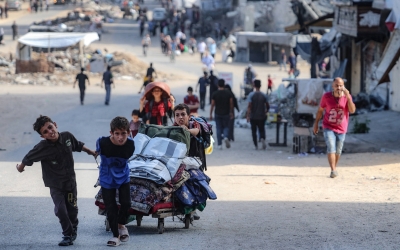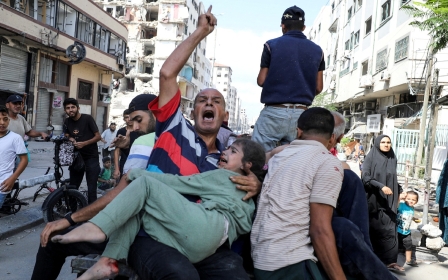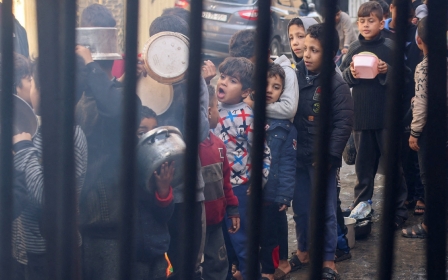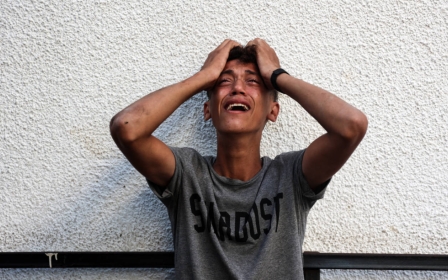All of Gaza 'at risk of famine' as Israel chokes off the north
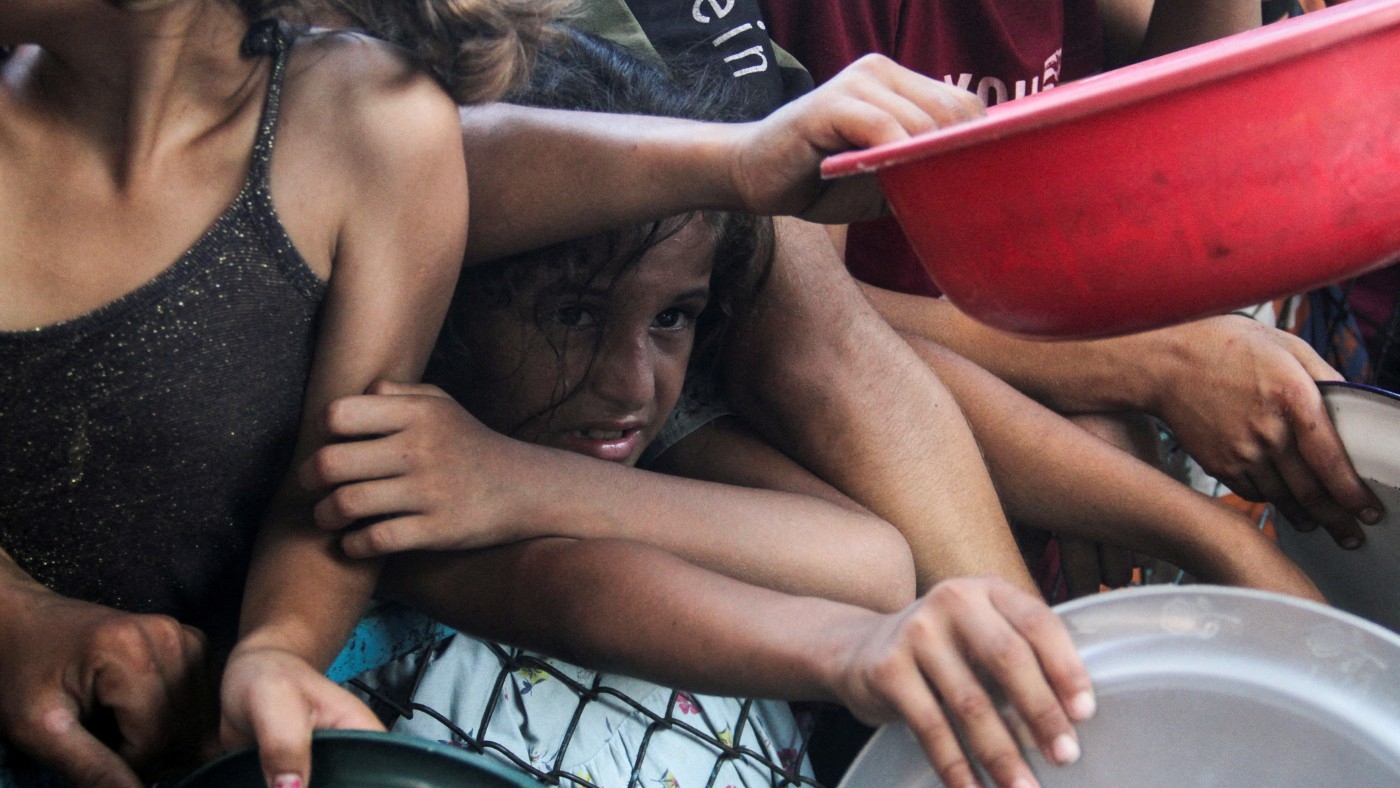
The entire population of the Gaza Strip remains at risk of famine and is currently experiencing an "emergency" level of acute food insecurity, a global hunger monitoring body has said, with the situation expected to deteriorate as Israel tightens its siege on the north of the besieged Palestinian enclave.
No food or aid of any kind has entered northern Gaza since 1 October amid a massive ground operation launched by the Israeli army.
The obstruction of humanitarian access and the intensity of the bombing campaign has significantly increased the risk of famine for residents in northern Gaza as food, water, fuel and medical supplies dwindle.
In a new UN-backed assessment published on Thursday, the Integrated Food Security Phase Classification (IPC) said around 1.84 million people across Gaza are living through high levels of acute food insecurity, including 133,000 people who are suffering "catastrophic" food insecurity.
The IPC, which conducted its new analysis between 30 September 30 and 4 October, is expecting the number of people experiencing catastrophic hunger to nearly triple in the coming months.
New MEE newsletter: Jerusalem Dispatch
Sign up to get the latest insights and analysis on Israel-Palestine, alongside Turkey Unpacked and other MEE newsletters
"Between November 2024 and April 2025, almost two million people, more than 90 percent of the population, are classified in IPC Phase 3 (Crisis) or above, of which 345,000 people (16 percent) are in Catastrophe (IPC Phase 5), and 876,000 people (41 percent) in Emergency (IPC Phase 4)," the IPC said.
The IPC classifies the most extreme warning as Phase 5, which has two levels, catastrophe and famine.
An estimated 60,000 cases of acute malnutrition among young children were expected between September 2024 and August 2025, it added.
In December, the IPC reported that the percentage of families in Gaza experiencing severe acute food insecurity is the highest ever documented worldwide, outranking Afghanistan and Sudan.
UN human rights chief Volker Turk described the assessment as "beyond terrifying".
"This crisis is principally the consequence of decisions made by the Israeli authorities. It is in their power to change the situation - urgently," he said, adding that the starvation of civilians as a method of warfare constitutes a war crime.
'Famine looms'
While the entry of food aid had increased since May, the IPC said, humanitarian access began shrinking again in September. Israel has also stopped processing requests from traders to import food to Gaza, choking off a crucial source of provisions, Reuters reported on Thursday.
"The risk of famine persists across the whole Gaza Strip. Given the recent surge in hostilities, there are growing concerns that this worst-case scenario may materialise," the IPC said.
The monitoring body expects Rafah and northern Gaza to likely face more severe acute food insecurity.
In recent weeks, the Israeli military has ordered the full evacuation of northern Gaza’s remaining 400,000 people, following the start of its major ground operation in the area on 6 October.
The Jabalia refugee camp has been one of the focuses of the military campaign, which has trapped people in their homes across the north for weeks.
Palestinians fear that the Israeli army is in the process of laying the groundwork for what has come to be known as the "General’s plan", which involves depopulating northern Gaza and then besieging the region - including preventing the entry of humanitarian supplies - to starve out anyone left, including Palestinian fighters.
A journalist in Gaza City told Middle East Eye that residents of the north were going hungry as Israel isolates them and chokes off aid deliveries. The remaining food supplies are coming from limited aid distributions of what was already in northern Gaza before the start of the Israeli campaign.
One resident of Jabalia said that the supply of fresh water is a particular concern, as well as that of food and firewood, the only means by which people can cook their food.
“We will face many problems in the coming period, if the siege of the area lasts longer than this, people might die of hunger and might risk their lives to get out,” Abed Ali told MEE.
UN Secretary-General Antonio Guterres said he was alarmed by the IPC analysis.
"Famine looms. This is intolerable. Crossing points must open immediately, bureaucratic impediments must be removed, and law and order restored so UN agencies can deliver lifesaving humanitarian assistance," he wrote on social media.
Middle East Eye delivers independent and unrivalled coverage and analysis of the Middle East, North Africa and beyond. To learn more about republishing this content and the associated fees, please fill out this form. More about MEE can be found here.


